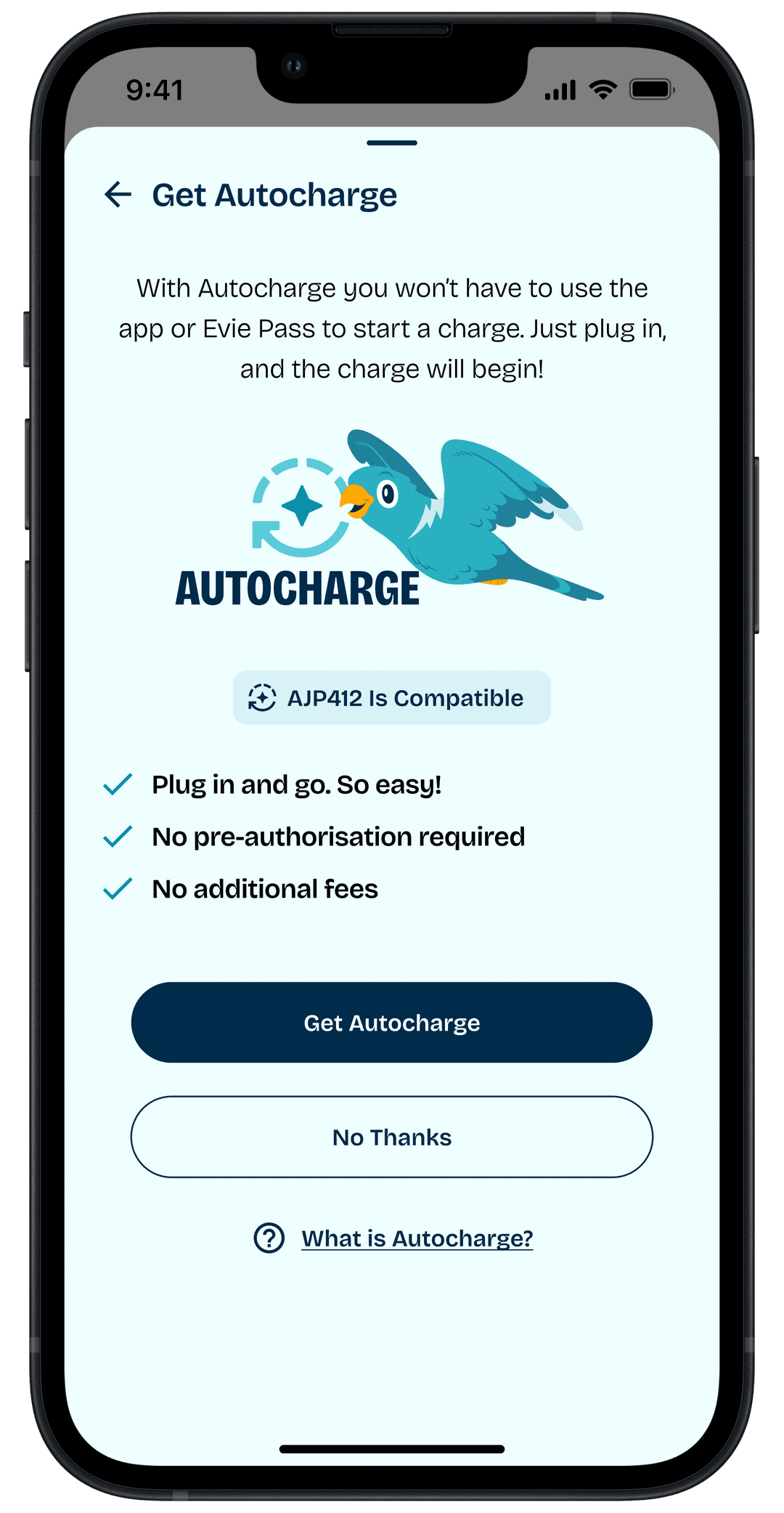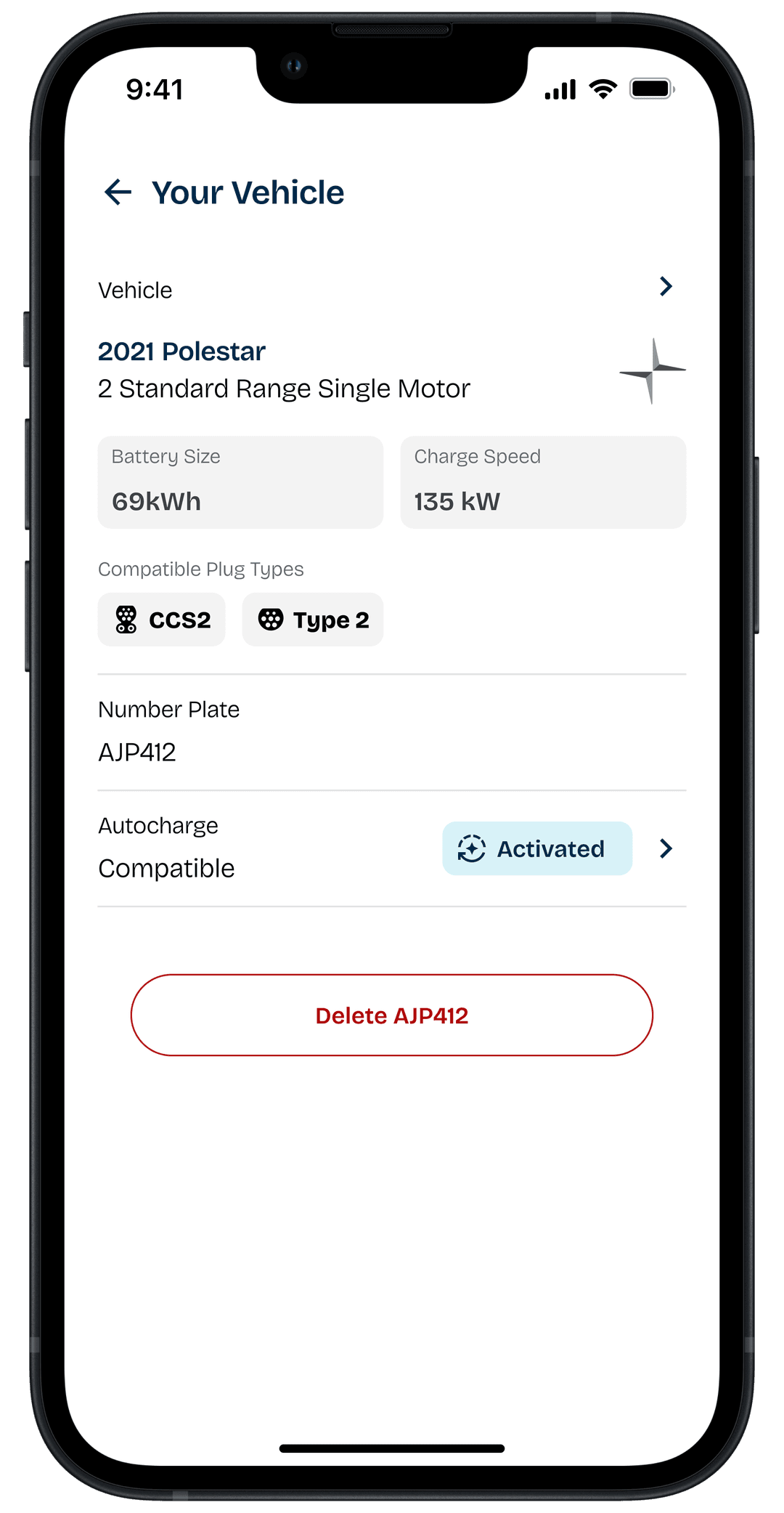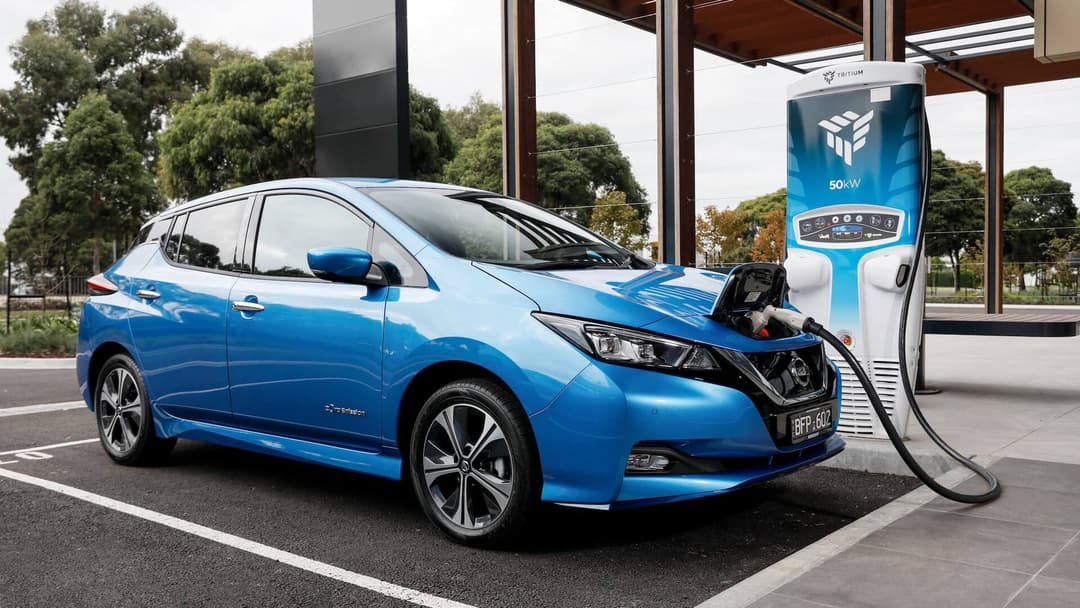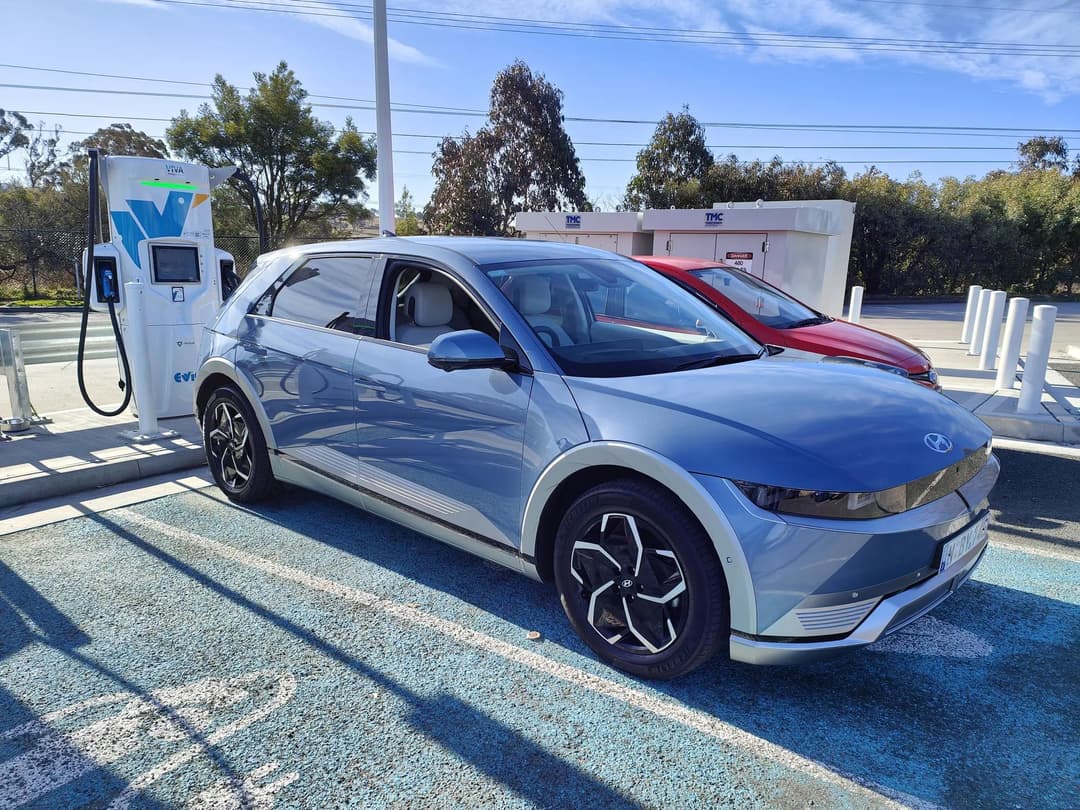Evie Networks began rolling out early access to Autocharge on July 17 2024, with plans for wider availability a few weeks afterwards.

What is Evie Autocharge & Can I use Paypal/Apple Pay when setting up Autocharge?
Autocharge is a feature that simplifies the EV charging process by using vehicles' MAC addresses to automatically initiate charging sessions. Once set up, users can start charging simply by plugging in their vehicle, eliminating the need to use the app for each session.
Unfortunately Paypal and Apple Pay are not supported for Autocharge. You will need to set your payment method to a debit or credit card.
To use Autocharge, customers need to have a compatible EV added to their account, a default debit or credit card (Apple Pay and PayPal are not supported), and at least one charge session on a compatible charger since June 1, 2024.
Users can end an Autocharge session from either the charger or their vehicle, with receipts sent via email and recorded in their Past Charges.
Evie Networks emphasizes the security of Autocharge, requiring user permission to use MAC addresses and employing a one-way hash for de-identification. The system allows users to remove or pause Autocharge for specific vehicles, and it's compatible with Evie vouchers.
Users should be aware that a vehicle can only be activated for Autocharge on one account, and it's recommended to set up Autocharge when not actively charging.
Please remember to deactivate Autocharge if you sell your car!

Incompatible Cars
Some vehicle manufacturers use dynamic Media Access Control (MAC) addresses as a security feature. A dynamic MAC address means that the address is either changed at regular intervals or shared across all vehicles of that make or model.
If you activate Autocharge on a vehicle with a dynamic MAC Address, there is a risk your account may be charged whenever that make or model is plugged in at an Evie charger. For this reason Evie do not allow vehicle models with dynamic MAC addresses to activate Autocharge.
Only the CCS-protocol sends a unique code for each EV and this is not the case for cars with an AC or CHAdeMO connector.
These are my educated guesses of which Australian EV brands/models Evie Autocharge is unlikely to ever work for:
- Nissan Leaf and all other CHAdeMO port EVs
- Volkswagen group (VW, Cupra, some/all Audi)
- Mazda MX-30
- BMW i7
- Rolls-Royce Spectre EV
- GWM Ora

Incompatible Locations
Evie Autocharge relies on specific Tritium technology. That's why Evie Autocharge is only available for 83% of their charger locations.
The Evie charger locations incompatible with Autocharge use:
- Tritium RT50 - found at Evie's early metropolitan sites. Their distinctive features include a red emergency stop and a basic digital clock-like interface.
- Tritium PK350s - found at many of Evie's highway sites. Their distinctive features include external plug holsters and cable arms.
The following locations are currently incompatible with Evie's Autocharge feature: Amaroo, Avenel, BP Caroline Springs, BP Northpoint, Brighton, Brisbane Airport, Buderim, Bundamba, Caddens Corner, Cameron Park, Campbell Town, Challis St Carpark, Cohuna, Coochin Creek, Coomera, Dandenong, Evoenergy Visitor Carpark, Harcourt, Inglewood, Jamisontown, Kerang, Kingsborough Kingston, Macksville, Melton South, Mosman Civic, Murrumbateman Country Inn, Newbridge, Noosaville, Northpoint Shopping Centre, Paralowie Village Shopping Centre, Sentinel Belconnen, Seven Hills, Sutton Forest West, Tailem Bend, Tarcutta, Taree, Taylors Lakes, Townsville, Tuggeranong CSCC, Tyndale, Uni Hill, Warrenheip, Westbury, Whitsunday Gold, and Woden CSCC.

About the author

Neerav Bhatt has been a technology journalist and photographer for over 20 years appearing in online, print, radio and TV media. His current focus is on helping Australians switch to electric vehicles as well as making their home fully electric, sustainable and climate resilient. Youtube: www.youtube.com/@NeeravBhatt Web: neeravbhatt.com
Stay up to date with the latest EV news
- Get the latest news and update
- New EV model releases
- Get money savings-deal
